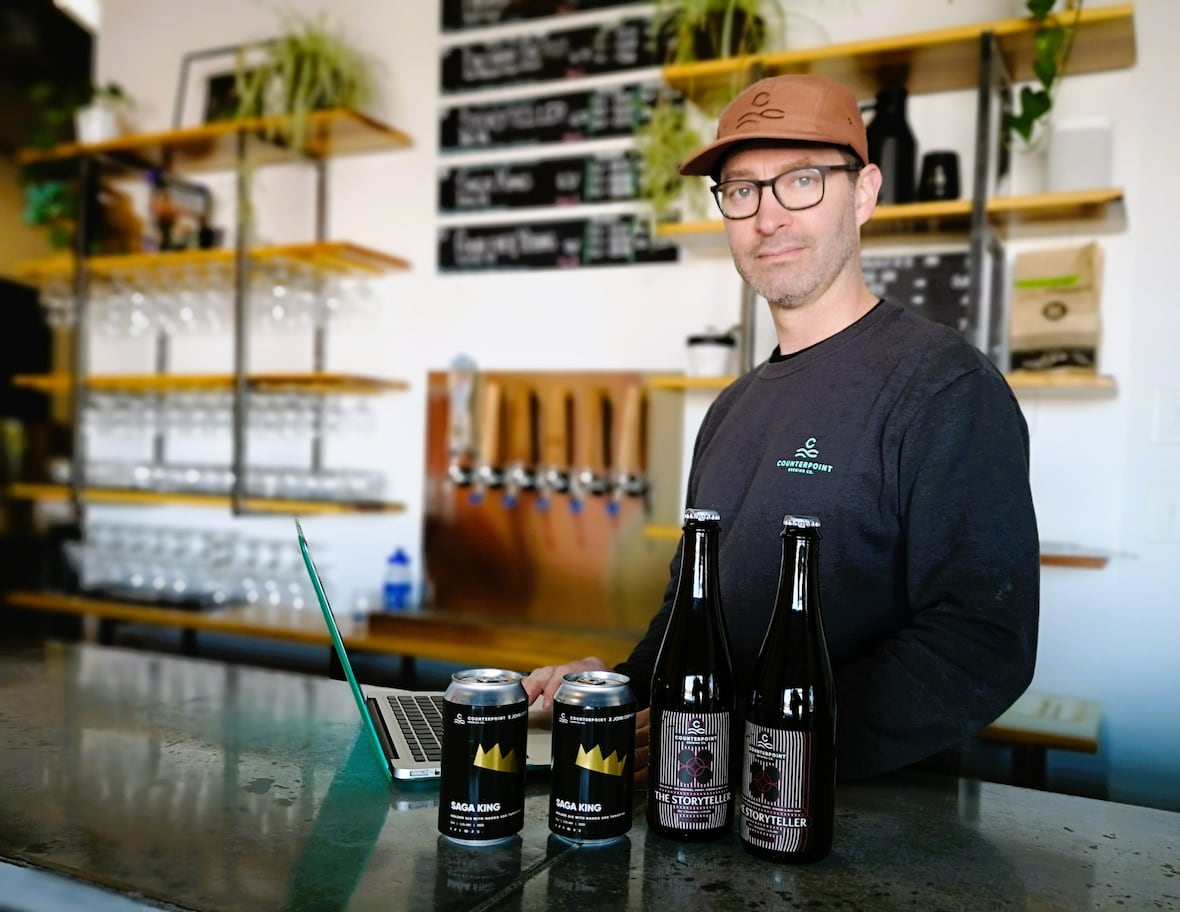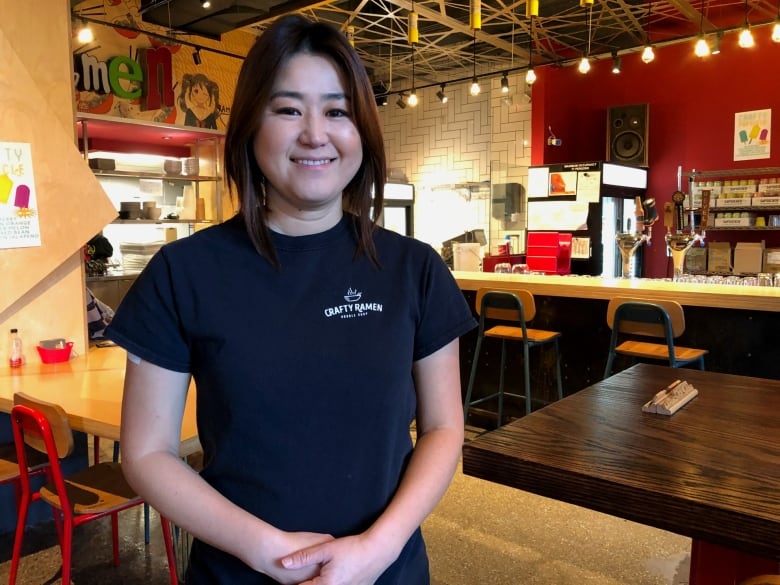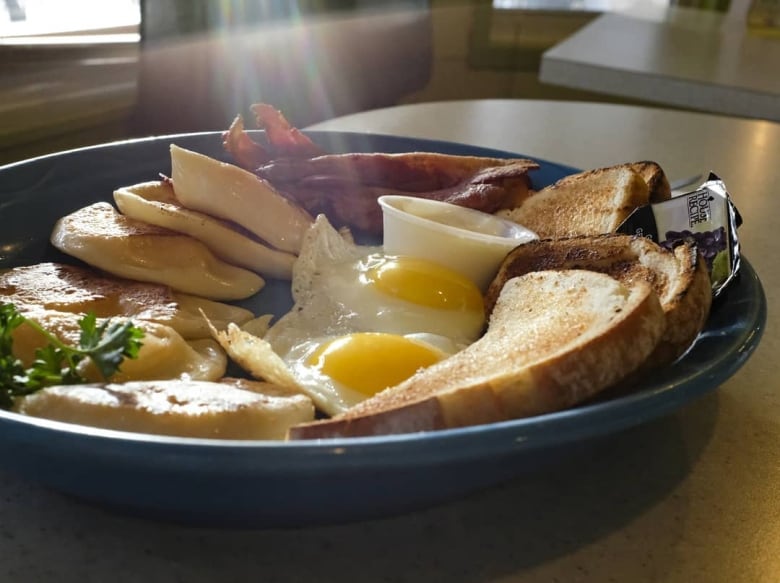Waterloo region's food industry has deepened roots and branched out since 2013: Andrew Coppolino
Looking ahead, it's unlikely food prices will return to 2020 levels

As CBC Kitchener-Waterloo has been reflecting back on the 10 years it's been on-air and online, our food columnist Andrew Coppolino is looking at how food in the region has changed over the same period. Part 1 published Saturday.Here's Part 2.
Waterlooregion was once largely known for Oktoberfest and all things German and perhaps still is though in a limited way.
As our food culture has diversified the reach has grown, and that can be seen in food, beverage and retail.
Let's start with beer, as an example. In2013, there were only a fewcraft breweries of note in Ontario.Todaythere are about 270 craft breweries in the province.
In Waterloo, Innocente opened in Waterloo in 2014. In Kitchener, Together We're Bitter opened in 2016; Counterpoint Brewing in 2019. In Cambridge, population 140,000 people, there are at least a dozen craft breweries, with Barncat Artisan Ales opening in 2016 and Four Fathers openedin 2018, for instance.
Ten years ago, there was one Beertown Public House in Cambridge. Ahighly successful part of the Charcoal Group brand, there are now ten Beertowns across southern Ontario with Newmarket opening April 8.
For the most part, doughnuts were to be had only at national chains and a select few local bakeries. The last decade has seen a flourishing of artisanal doughnuts: Debrodnik's opened small in Waterloo in 2012 and expanded to Kitchener, Brantford and Ancaster. Lady Glaze Doughnuts first opened in Belmont Village in 2019 and now has locations in Stratford, Cambridge, Guelph and Hamilton. Albert's Doughnuts opened in Cambridge in 2019.
Crafty Ramen opened in Guelph in 2017; there is now a second location in downtown Kitchener and mere weeks ago, the companyopened a third location on Ossington in Torontoafter a successful presentation on CBC's Dragon's Den.
Gol's Lanzhou Noodles started in Montreal but got a significant boost from its location near the University of Waterloo so much so that the successful proof-of-concept encouraged the company to add locations in North York and Manitoba.

How food is sold in retail stores
International foods are now much more easily found in chain grocery stores, which tailor their SKUs to the population demographics of the neighbouring residents.
For example, a particular store might carry a wide range of produce such as cassava and plantain if the neighbourhood is home to many people of Caribbean and African descent.
As well, specialty stores especially Indian, Caribbean and Middle Eastern have also flourished, including venues such as Ammar's, OMA Fresh Foods in Kitchener and Desi Food Mart in Cambridge. Even a western food purveyor like Vincenzo's has become quite culturally diverse in the foods it sells.
Room for improvement
As wages climb, but not enough to keep up with the cost of living, tipping in the industry will continue to be an issue. There is already a backlash by consumers against the increase in businesses food operations or not asking for tips for staff.
About to open this year, one Kitchener food operation has based its business on a no-tip model. The question is, will there be more?
With dramatically-rising food prices, many restaurants struggle to keep costs at a point that doesn't drive customers away. That can have quality ramifications, says baker and restaurateur Aura Hertzog of AURA-LA Pastries and Provisions.
"You used to be able to go out and get a reasonably priced breakfast with thick bacon, good bread and real potatoes at an approachable price," she said.
"Now the bacon is thinner, the bread lower quality and the home fries are frozen. Price hasn't increased too much because the customer is still the same, but the integrity has been compromised."

In Stratford, a small city with a big restaurant presence in their downtown, Caf Bouffon owner Larry McCabe says housing is an issue that causes stressfor the industry.
"We don't have suitable accommodation for young workers," he says. "This was a trend we saw prior to the pandemic, and it has accelerated since COVID."
In Waterloo region, it's difficult for young staff members to get to more isolated venues when there is inadequate public transitand they can't afford cars and expensive housing on low salaries.
Stephanie Soulis, of Little Mushroom Catering and Lounge in Cambridge, says there is room for improvement when it comes to the security of women and LGBTQ people.
"I've spent the last decade creating a safe space for cooks who keep coming to me with stories of abuse and harassment," she said.
"Collaborations have grown immensely, but there is still an 'old boys club' mentality among those who grew up in the industry where there can be less opportunity and willingness to work with anyone outside their niche."
Labour and well-being movements have more prominent in the industry today, but Soulis says more needs to be done. That includes attention to working conditions and mental health for the food industry's frontline workers, an aspect you didn't hear a lot about 10 years ago.
What's ahead in the next 10 years?
When building is more complete in downtown cores of Cambridge, Kitchener and Waterloo, it could mean thousands more people looking for food experiences within walking distance. A robust 15-minute citycould be good for restaurant revenues.
It's unlikely that food prices will return to where they were three years ago, so food operations will have to contend with that obstacle. The pandemic has stalled growth and progress as businesses just hang on; that may not be corrected for several years.
Food businesses will also have to grapple with the cost increases caused by the carbon tax as it moves ahead.
As food production costs are likely to continue to rise, will there be a $20 avocado? If so, it means they will be hard to get on menus. As agriculture is ravaged by catastrophic climate events and water becomes an even more precious commodity, it's likely that more greenhouse agriculture, vertical farms, like GoodLeaf in Guelph, and cultured-call proteinswill appear in the future: we may have no choice but to adopt these modalities.
More food businesses will upcycle food waste and otherwise reduce the amount of food that is binned and goes to landfill. Since the pandemic, that has not been a primary objective of most restaurants just trying to survive (in fact, packaging waste increased with COVID-19 take-out orders), but will have to adapt to take care of the environment.
Yet, evidence of a culture change is being seen right now with Guelph-basedFriendlier expanding across the country. The start-up supplies food operations with re-usable food containers, and since 2019 has helped prevent toxic emissions from entering the atmosphere and kept tonnes of plastic out of landfills.
Significant growth in city cores, Cambridge, Kitchener, Waterloo, is bound to help food businesses with more people living in downtowns and embracing the food culture in the next decade. While he's speaking about Stratford, McCabe at Caf Bouffon says a critical mass is necessary, a factor that transcends municipal borders.
"You need young people to make a vibrant restaurant and cultural scene, and it concerns me that this is not understood by policy makers," McCabe said."I see independent restaurants as culturally significant."












_(720p).jpg)


 OFFICIAL HD MUSIC VIDEO.jpg)
.jpg)



























































































